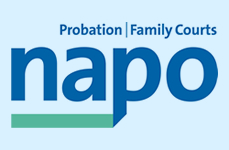More often than not, beleaguered Government Ministers are regularly asked to do the exact opposite. It's an occupational hazard for anyone in charge of anything of course, but heading up one of the most powerful departments of state brings big responsibilities.
Napo's interface so far with the Secretary of State and the Probation and Prison Minister Sam Gyimah confirmed that they were embarking on a tough mission designed to repair the damage caused by Chris Grayling and which Michael Gove never quite had time to address as he succumbed to naked ambition and the ultimately unattainable prospect of becoming primus inter pares.
Anyway, this is past and recent history and it’s what is going to happen next that we await with baited breath.
Napo has long argued that even before the disastrous Transforming Rehabilitation experiment, the NOMS infrastructure, and its very purpose in life if I am being honest, were in dire need of review or abolition. Let me make it absolutely clear that this is not to question the skill, commitment and sheer hard work that individual staff and Napo members have made and are making to the organisation, but as Agencies go, NOMS is still seen as a bureaucratic and prison centric mish-mash of command structures that were problematical in themselves many years ago and which, in probation terms at least, have simply been unable to hack it post TR.
Governments have a habit of creating agencies in reaction to a perceived problem without having first thought through how that Agency would necessarily solve the problem. NOMS is a good example. It has always been a barrier between the Ministers and the MoJ and front line delivery – an extra set of people to blame if and when something went wrong. Grayling went a step further to compound all this by privatising as much as he could get away with, making strategic co-ordination even more challenging.
An example of just one of the difficulties that NOMS through the NPS faces is implementation of E3. It is a business model that ought to have been in existence at the time of the staff split that presaged TR, but it was not; and the NPS is playing catchup to get staff in the places it needs them and at the same time seeks to dilute professional standards to get the job done more quickly and cheaply. Its classic austerity driven business engineering of the like that has floundered or failed elsewhere and it will take a lot to convince our members that it won’t go the same way.
Napo is doing its best to engage with this challenging agenda and while we appreciate the efforts being made by our NOMS counterparts to respond to the myriad issues that members are regularly asking us to take to them, I often feel that they are swimming against an increasingly fierce tide with little sign of a lifeboat appearing any time soon.
Not that their parent department are exactly a raging success, but if Ministers have decided to adopt a radical approach to reform or even scrap NOMS, then it’s unlikely that there will be any tears shed amongst our members out there at the sharp end.
Merging prisons and probation?
If abolition happens then what would be put in its place? It would be great to think that a separate MoJ agency covering Prisons and Probation might emerge which would hopefully have the right mix of managerial and professional skills to get a real grip on the perennial problem of prison overcrowding and post sentence recidivism and an expectation that Government will grasp the opportunity it presents for inclusive, outcome focussed strategic reflection.
However you organise accountability at the centre, public safety outcomes across probation, prison and courts are intrinsically linked.
You will only solve the prison crisis by reducing the number of people sent to prisons. You only do this by placing rehabilitation, and probation, at the heart of everything you’re seeking to achieve.
We welcome the Secretary of State stepping up and looking to break the cycle of failure and crisis. We look forward to continuing the dialogue around operational reforms that will being better, safer outcomes for our members and the public – starting with urgently addressing probation pay reform; bringing clarity and stability to the contracts with the CRC’s; and inclusive development of a new Offender Management in Custody strategy built around strong rehabilitation principles that will deliver better, safer outcomes for offenders, staff and the public.
Watch this space.
